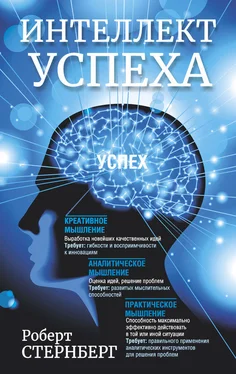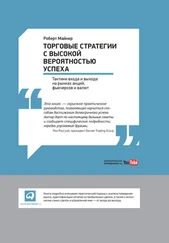R. Sternberg, and T. Lubart. Defying the Crowd: Cultivating Creativity in a Gulture of Conformity (New York: Free Press, 1995).
J. Garcia, and R. Koelling. «The Relation of Cue to Consequence in Avoidance Learning». Psychonomic Science 4 (1966), pp. 123–124.
R. Sternberg. Beyond IQ: A Triarchic Theory of Human Intelligence (New York: Cambridge University Press, 1985). R. Sternberg. The Nature of Creativity: Contemporary Psychological Perspectives (New York: Cambridge University Press, 1988). R. Sternberg, and T. Lubart. Defying the Crowd .
R. Schank. The Creative Attitude (New York: Macmillan, 1988).
T. Amabile. The Social Psychology of Creativity (New York: Springer-Verlag, 1983)
R. Sternberg, and T. Lubart. Defying the Crowd
T. Amabile. The Social Psychology of Creativity.
B. Hennessey, and T. Amabile. «The Conditions of Creativity». В книге: R. Sternberg. The Nature of Creativity , pp. 11–38.
T. Lubart, and R. Sternberg. «An Investment Approach to Creativity: Theory and Data». в книге: S. Smith, T. Ward, and R. Finke. The Creative Cognition Approach (Cambridge, Mass: MIT Press, 1995), pp. 269–302.
R. Sternberg. In Search of the Human Mind (Orlando, Fla.: Harcourt Brace College Publishers, 1995). R. Sternberg, and W. Williams. «Parenting Toward Cognitive Competence». в книге: M. Bornstein. Handbook of Parenting, vol. 4 (Mahwah, N.J.: Erlbaum, 1995), pp. 259–275.
R. Sternberg, and T. Lubart. Defying the Crowd .
N. Kogan, and M. Wallach. Risk Taking: A Study in Cognition and Personality (New York: Holt, Rinehart & Winston, 1964).
D. Jackson, L. Hourany, and N. Vidmar. «A Four-Dimensional Interpretation of Risk Taking». Journal of Personality 40 (1972), pp. 483–501.
T. Amabile. The Social Psychology of Creativity .
H. Gruber. «The Self-Construction of the Extraordinary». в книге: R. Sternberg, and J. Davidson. Conceptions of Giftedness (New York: Cambridge University Press, 1986), pp. 247–263.
H. Stevenson, and J. Stigler. The Learning Gap (New York: Summit, 1992).
G. Plimpton. Poets at Work (New York: Viking Penguin, 1989), pp. 8.
F. Holmes. Lavoisier and the Chemistry of Life: An Exploration of Scientific Creativity (Madison: University of Wisconsin Press, 1985).
P. Frensch, and R. Sternberg. «Expertise and Intelligent Thinking: When Is It Worse to Know Better?». в книге: R. Sternberg. Advances in the Psychology of Human Intelligence , vol. 5 (Hillsdale, N.J.: Erlbaum, 1989), pp.157–158.
M. Csikszentmihalyi. «Society, Culture, and Person: A Systems View of Creativity». в книге: R. Sternberg. The Nature of Creativity (New York: Cambridge University Press, 1988), pp. 325–339.
T. Amabile. The Social Psychology of Creativity .
R. Sternberg. «Implicit Theories of Intelligence, Creativity, and Wisdom». Journal of Personality and Social Psychology 49 (1985), pp. 607–627.
D. McClelland. «Testing for Competence Rather than for ‘Intelligence’». American Psychologist 28 (1973), pp. 1—14.
G. Barrett, and R. Depinet. «A Reconsideration of Testing for Competence Rather than for Intelligence». American Psychologist 46 (1991), pp. 1012–1024.
L. Gottfredson. «Societal Consequences of the g Factor». Journal of Vocational Behavior 29 (1986), pp. 379–410. J. Hawk. «Real World Implications of g». Journal of Vocational Behavior 29 (1986), pp. 411–414. F. Schmidt, and J. Hunter. «Employment Testing: Old Theories and New Research Findings». American Psychologist 36 (1981), pp. 1128–1137.
A. Wigdor, and W. Garner. Ability Testing: Uses, Consequences, and Controversies (Washington, D.C.: National Academy Press, 1982).
J. Hunter, and R. Hunter. «Validity and Utility of Alternative Predictors of Job Performance». Psychological Bulletin 96 (1984), pp. 72–98. Schmidt, and Hunter, ‘’Employment Testing.»
J. Hunter, and R. Hunter. «Validity and Utility of Alternative Predictors of Job Performance». Psychological Bulletin 96 (1984), pp. 72–98. Schmidt, and Hunter, ‘’Employment Testing.»
R. Herrnstein, and C. Murray. The Bell Curve (New York: Free Press, 1994).
R. Herrnstein, and C. Murray. The Bell Curve (New York: Free Press, 1994).
C. Schooler. «Psychological Effects of Complex Environments During the Life Span: A Review and Theory». в книге: C. Schooler, and K. Warner Schaie. Cognitive Functioning and Social Structure over the Life Course (Norwood, N. J.: Ablex, 1987), pp. 24–49.
U. Neisser. «General, Academic, and Artificial Intelligence». в книге: L. Resnick. Human Intelligence: Perspectives on Its Theory and Measurement (Hillsdale, N.J.: Erlbaum, 1976), pp. 179—89.
S. Wllliams, N. Denney, and M. Schadler. «Elderly Adults’ Perception of Their Own Cognitive Development During the Adult Years». International Journal of Aging and Human Development 16 (1983), pp. 147–158.
J. Horn, and R. Cattell. «Refinement and Test of the Theory of Fluid and Crystallized Intelligence». Journal of Educational Psychology 57 (1966), pp. 253–270.
J. Carroll. Human Cognitive Abilities (New York: Cambridge University Press, 1993).
R. Dixon, and P. Baltes. «Toward Life-Span Research on the Functions and Pragmatics of Intelligence». в книге: R. Sternberg, and R. Wagner. Practical Intelligence: Nature and Origins of Competence in the Everyday World (New York: Cambridge University Press, 1986), pp. 203–235.
N. Denney, and A. Palmer. «Adult Age Differences on Traditional and Practical Problem-Solving Measures». Journal of Gerontology 36 (1981), pp. 323–328.
F. Mosher, and J. Hornsby. «On Asking Questions». в книге: J. Bruner, R. Oliver, and P. Greenfield. Studies in Cognitive Growth (New York: Wiley, 1966).
S. Cornelius, and A. Caspi. «Everyday Problem Solving in Adulthood and Old Age». Psychology and Aging 2 (1987), pp. 144–153.
P. Baltes, and M. Baltes. «Psychological Perspectives on Successful Aging: A Model of Selective Optimization with Compensation». в книге: P. Baltes, and M. Baltes. Successful Aging Perspectives from the Behavioral Sciences (Cambridge: Cambridge University Press, 1990), pp. 1—34.
Читать дальше









